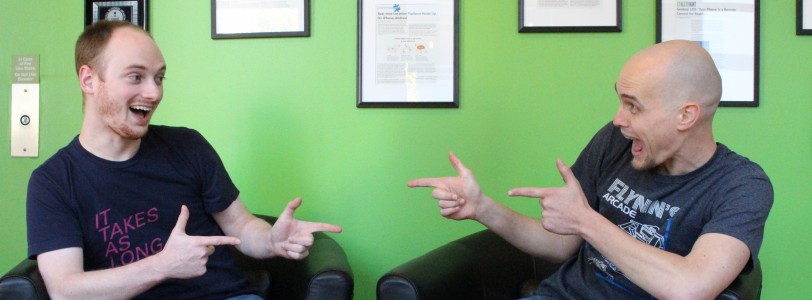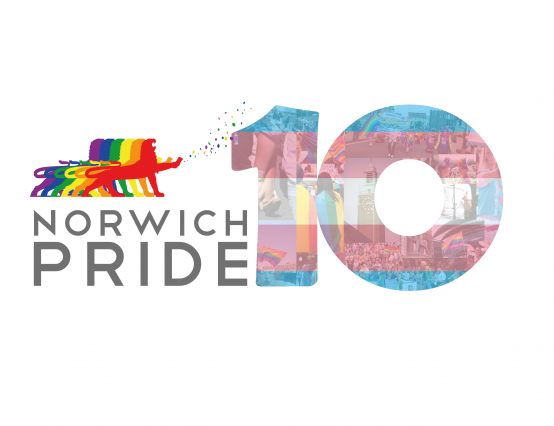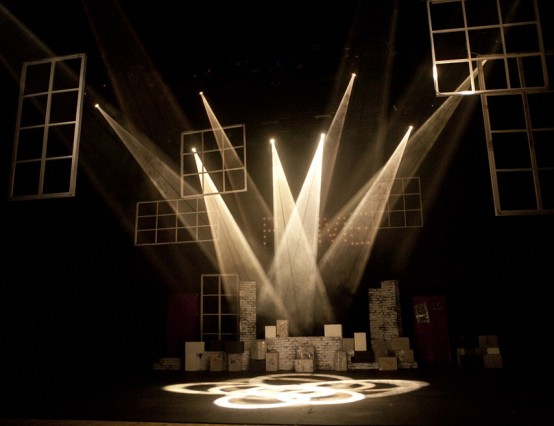If you’re doing your Bronze, Silver or Gold Arts Award, it’s most likely that you need to research someone who works in the industry. An interview is a great way to get direct career advice, whilst also unexpectedly gaining new interview skills that will glow on your CV. You can have an interview face-to-face, over the phone, via email, via social media (i.e.Twitter), video call (i.e.Skype), or even telekinesis! (I’m joking - don’t do that).
However, before you jump headfirst into interviews, you need to know what you’re doing. Here are my top tips to help you prep before you interview an artist:
Research
Make sure you know who you want to interview and what they do. It’s pointless having an interview with someone you know nothing about, as it’ll lead to a bit of an awkward atmosphere trying to engage with someone who's work you're not familiar with.
It’s best to find someone in the field(s) that you’re doing your Arts Award in and are interested in - preferably someone you can contact easily. While it’s great to research Adele and get an interview with her, it would be very unlikely to happen. If you’re struggling with finding someone you can contact, ask your Advisor or Centre for help - they usually have loads of contacts for you to look up.
Make sure you present your research in your own way for your portfolio if you’re doing your Arts Award. Maybe you could combine your research and interview in a video? It’s entirely up to you! Read more about what you need to do for your Arts Award portfolio here.
Contact
For many people, messaging someone you’ve never met is really uncomfortable and scary. Don’t worry, it is a huge part of the working life, so you’ll get used to it, as long as you're professional in your approach you’ll be fine.
If you’re sending a message via email, you can plan what you’re going to say, and reduce your nerves. Here are some suggestions of how you could structure your email:
“Hello/Hi there, (use names where you can)
I’m contacting you as I would like to interview you about your occupation and your work for my Arts Award, specifically Bronze/Silver/Gold. I’ve been following your work on XXX and I really admire XXX about your work. I would love to know about your working process.
It would be an opportunity for your work to be promoted and you would be helping me develop my interview skills.
If you are interested or have any questions, then please feel free to email me back.
All the best,
XXX”
Having this professional yet slightly informal tone in your email will really help you out because the artist will be able to see that you’re a passionate individual who’s genuinely interested in their work. The respondent will trust you and understand the email, and they may even accept the offer of an interview. If they decline, don’t be disheartened, just email the next person you wanted to interview. Don’t forget you’ll have your advisor to help you out just in case.
Prepare
Once you’ve agreed the interview and arranged a date, time and location, now is the time to prepare yourself. Prepare a list of questions, but keep them open - it will help if the interview feels like a naturally flowing conversation. The questions will help you stay on track and learn about what you want to know. Here are some ideas for questions to ask someone in an interview:
- ‘Tell us about yourself’ (you usually ask this to inform the audience rather than yourself), or if it’s an email interview you could say ‘how would you describe your work in your own words?’
- ‘How did you get into the industry?’
- ‘What made you decide to get into your chosen career in the first place?’
- ‘What’s it like being an artist?’
- ‘What have been your biggest challenges to date?’
- ‘What’s your advice to young people getting into your field?’
Again, keep the questions open to allow the artist a chance to expand on their answers. You may find out something really interesting about the interviewee, and you’ll want to take note of what they say.
Next, think about how you will record the interview - you can bring a pen and paper or laptop to make notes throughout the interview, or you can record your interview on a camera and edit the footage later to make a unique addition to your Arts Award portfolio. You can even use a dictaphone! How you record it is up to you, but make sure you do, otherwise that’s a large chunk of your portfolio missing.
The Interview
Oh yes - the scary part begins! Don’t worry, just treat it like a general conversation, set up the interview how you need to and get started! Here are a few tips I’ve learnt from interviewing people: :
- Make sure the conversation doesn’t stray. It’s great that you are getting to know them, but neither of you have all the time in world so it’s best to return to the topic or move on to the next question. It’s more respectful to the interviewee to stick within the time limit and not use up more of their time.
- Print off or write down your questions and have them in front of you to remind you where you are during the interview. Being prepared will also help keep your nerves calm.
- Be wary of the attitude of the interviewee - most of the time, artists can be very lovely people. But, like people, their personalities and behaviour can vary. Some are a little bit shy or nervous, some can be downright hostile and rude. The best thing to do in this situation is to be the better person, without being rude:
To combat shyness or aloofness, don’t force information out of them. Be patient and understand that this is scary for them just as it’s scary for you.
To combat rudeness, don’t get angry or pull an angry facial expression, politely move on to the next question. It’s doesn’t look good raising up to them, so for goodness sake do not get into an argument with them!
- Be yourself. The interview will be a lot easier if you were your cool, unique and individual self. It will become a lot more relaxed and the pressure will ease considerably.
- Be polite. It’s always good for everybody if you’re polite. Simple.
Type up/Follow up
Once the interview is over, it’s time to collate everything, type-up and edit it so that it’s ready to share with the world.
Remember: always double check your facts are correct, or if your interviewee wants to clarify what they said. It’s often beneficial to follow up with the interviewee to make sure you’re clear on their answer and to help you establish a professional connection, rather than just doing the interview and never talking to them again. It’s not only great for your Arts Award, it will give you a fabulous career boost.
Once it’s all sorted, load it up to Voice Mag.








0 Comments